Below are news items from the UBC IRES community.
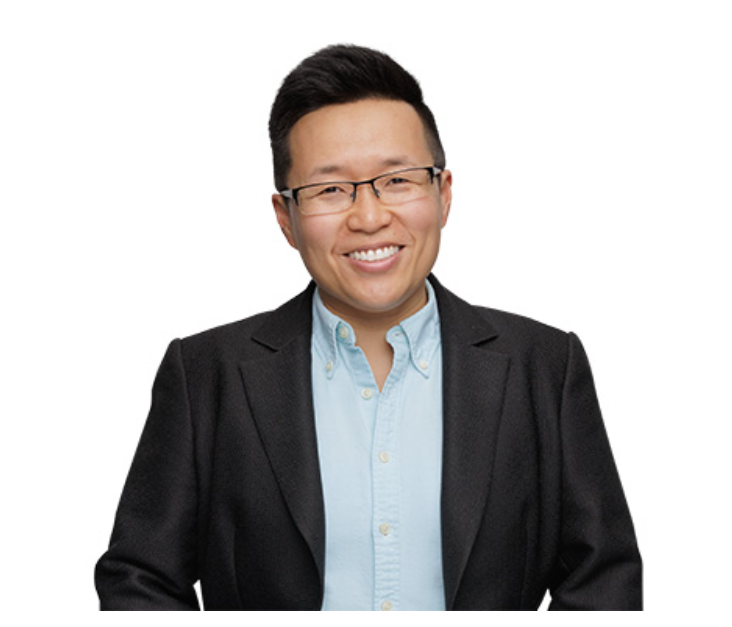
Jiaying Zhao helps people enjoy protecting the planet
🌎💚 Can we make meaningful climate action feel happy instead of miserable? Dr. Jiaying Zhao answers this and more in the American Psychological Association.
How a lottery-style refund system could boost recycling
Dr. Jiaying Zhao and Jade Radke are featured in the Conversation for their innovative study to increase recycling rates through a green lottery. If done right, offering a chance to win a higher amount of money for recycling can meaningfully increase recycling rates, contribute to a circular economy and allow people to choose the refund option that works best for them.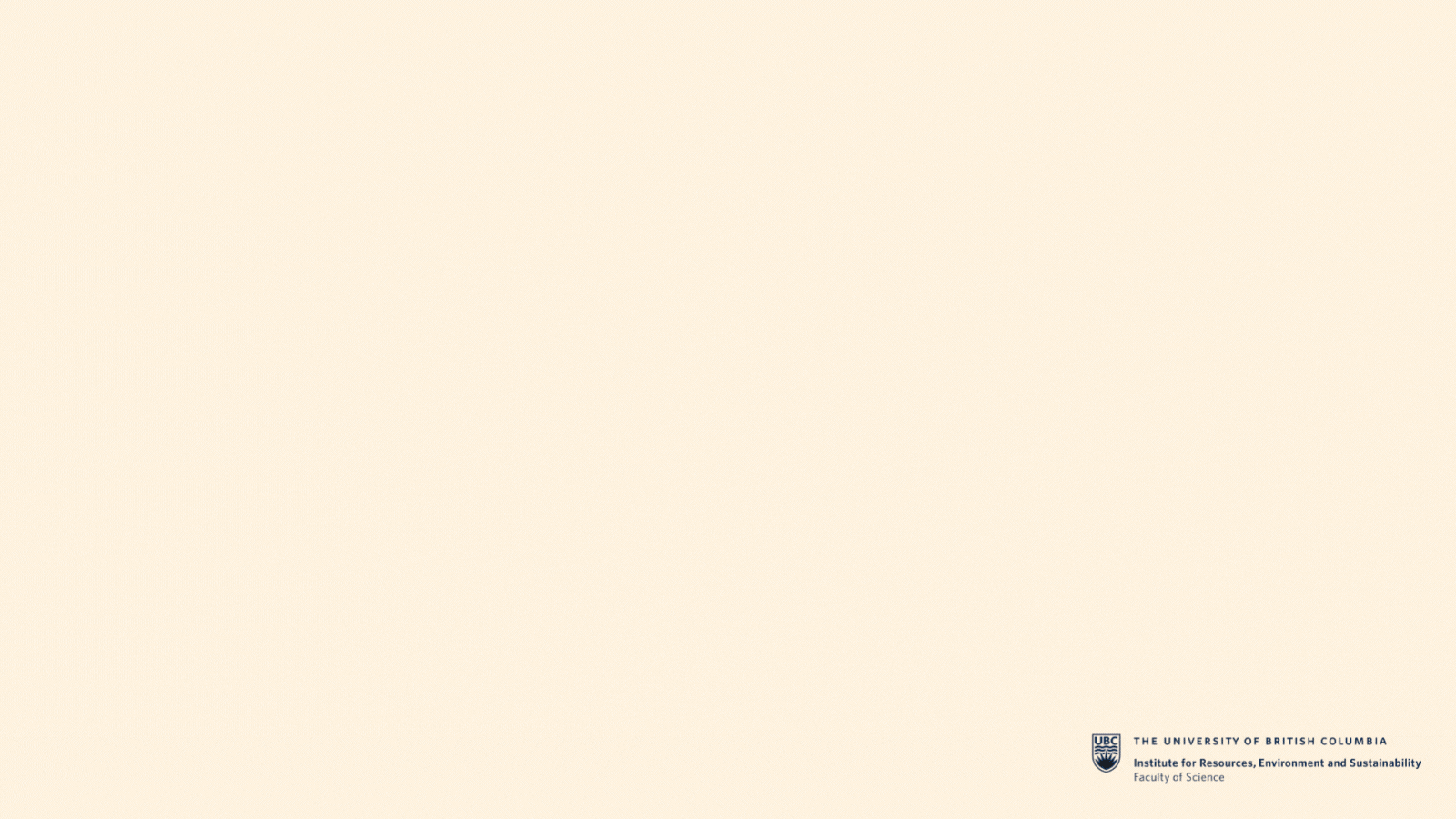
Two global Frontiers Planet Prize winners call for a future of diversified farming
For James and Klassen, who were PhD students at IRES while contributing to the award-winning study, what matters most is what comes next. Will the world be willing to do the hard work of supporting farmers diversify their practices?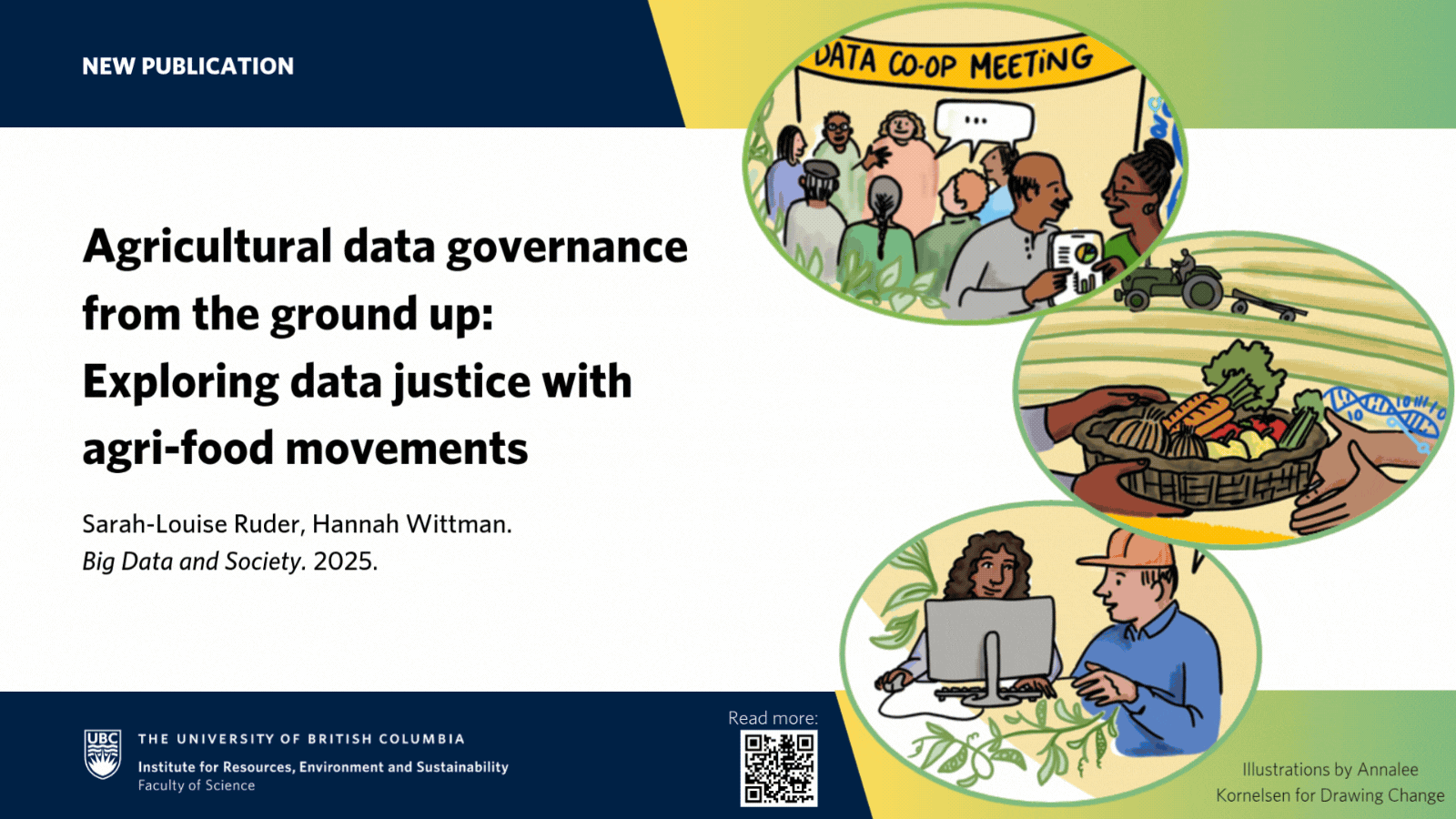
Rethinking agricultural data through a justice lens
Governments are increasingly asking farmers to share more data, especially around environmental concerns like nutrient management. And the private sector is racing ahead with new digital tools. But the question remains: who benefits?
This is a climate election
Dr. Simon Donner is featured in the analysis of the main party platforms on climate change seems to suggest that emissions would continue a gradual decline under a Mark Carney government, but not under one run by Pierre Poilievre.
Farm-diversification research wins high kudos
An international group of researchers, including IRES alum and current faculty, are named U.S. national champions of the Frontiers Planet Prize for research that finds environmental and social benefits of agricultural diversification.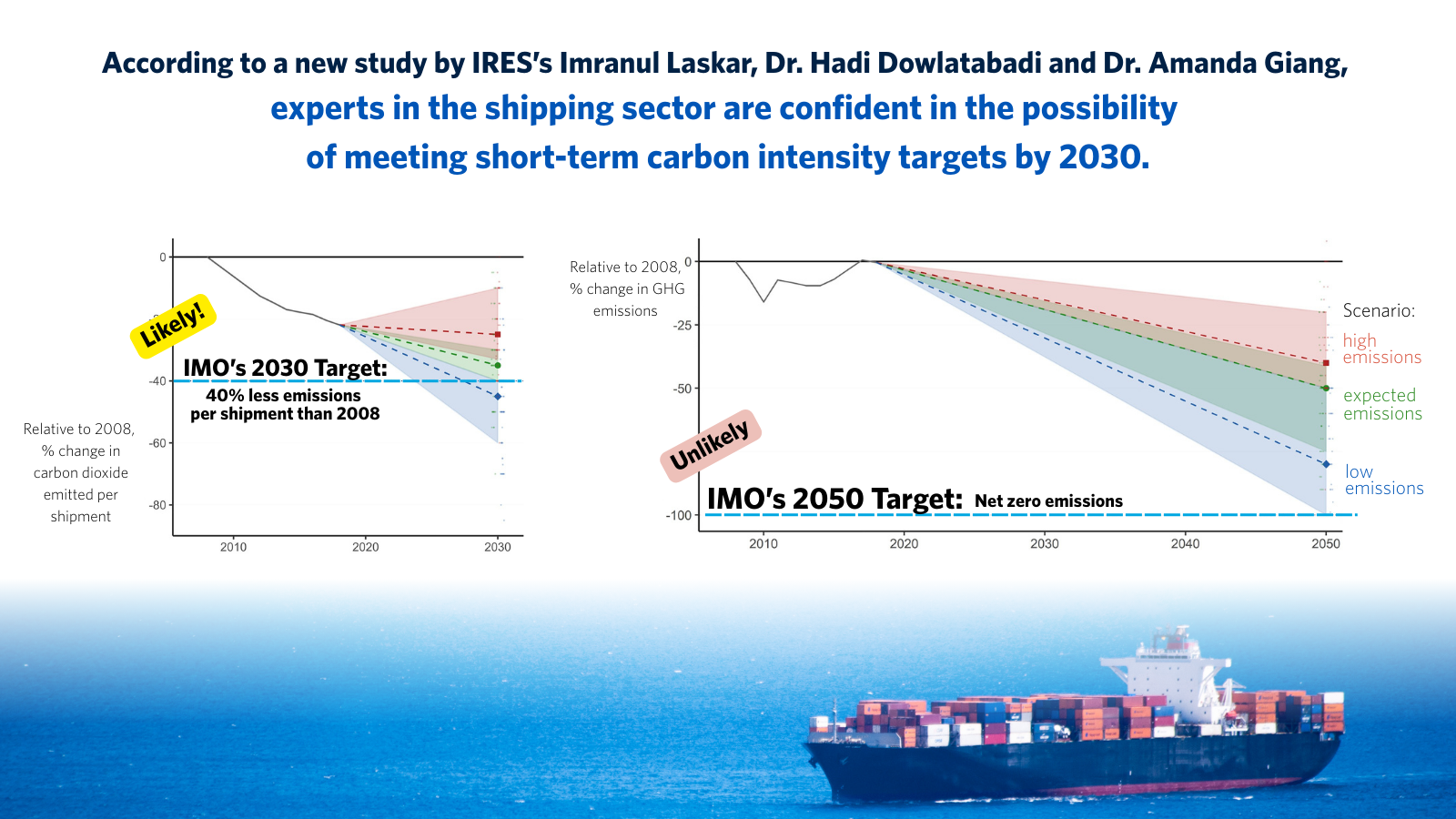
Q&A: How maritime experts are charting a course to cut emissions by 40% per shipment by 2030
While international shipping accounts for over 3% of global greenhouse gas emissions, there’s optimistic news emerging from the experts working to decarbonize this critical sector. According to a new study by IRES’s Imranul Laskar, Dr. Hadi Dowlatabadi and Dr. Amanda Giang, many experts in the shipping sector are confident in the possibility of meeting short-term […]
Solid Carbon receiving $24 million to advance ocean-based carbon dioxide removal
Dr. Terre Satterfield is co-leading a $24-million initiative over six years through the Government of Canada’s NFRF to advance the Solid Carbon research project—one of the most promising ocean-based carbon dioxide removal (CDR) initiatives of the modern era to combat the climate crisis.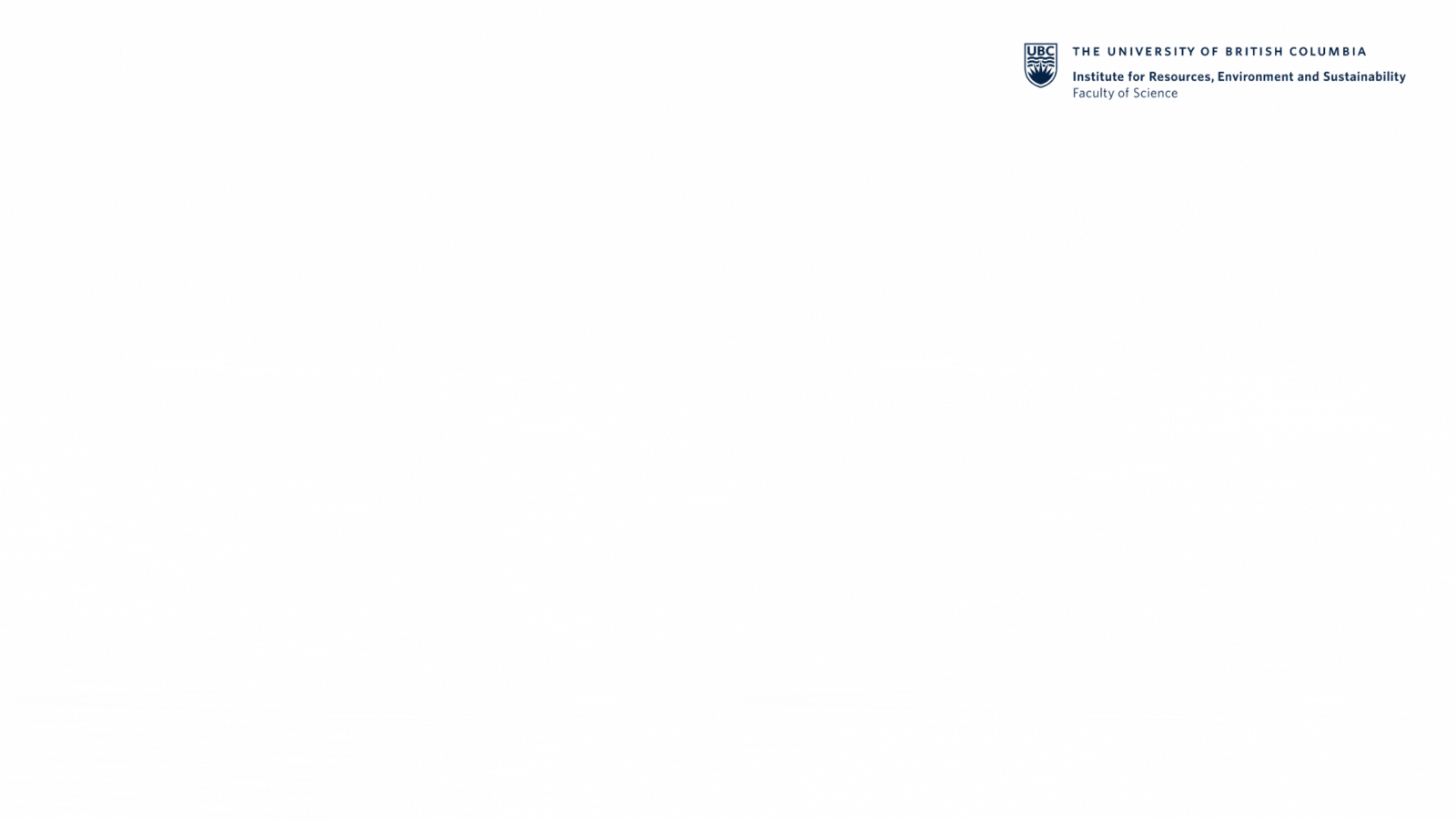
$22 million awarded to Indigenous-led and multi-institutional research project for Indigenous and community-based approaches to chemical risk management
IRES has partnered with 20 researchers and collaborators from Canada and Aotearoa (New Zealand) on a large international research initiative that puts Indigenous experts as leaders in designing how chemical risk is evaluated and managed.
The age of extinction – Why fear of billion-dollar lawsuits stops countries phasing out fossil fuels
A UN report by Dr. David Boyd has been featured in the Guardian to explain how companies can sue governments for closing oilfields and mines – and this risk of huge damages is already stopping countries from passing green laws!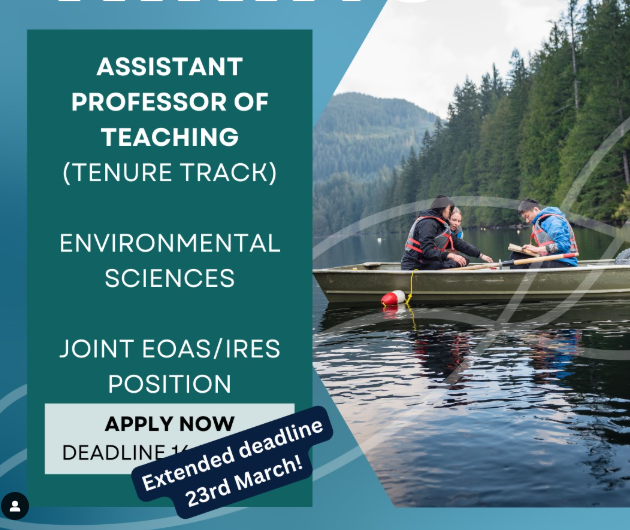
Job Posting: Associate Professor, Faculty of Education
The Department of Earth, Ocean and Atmospheric Sciences and IRES invite applications for the position of Assistant Professor (tenure track) of Teaching in Environmental Science.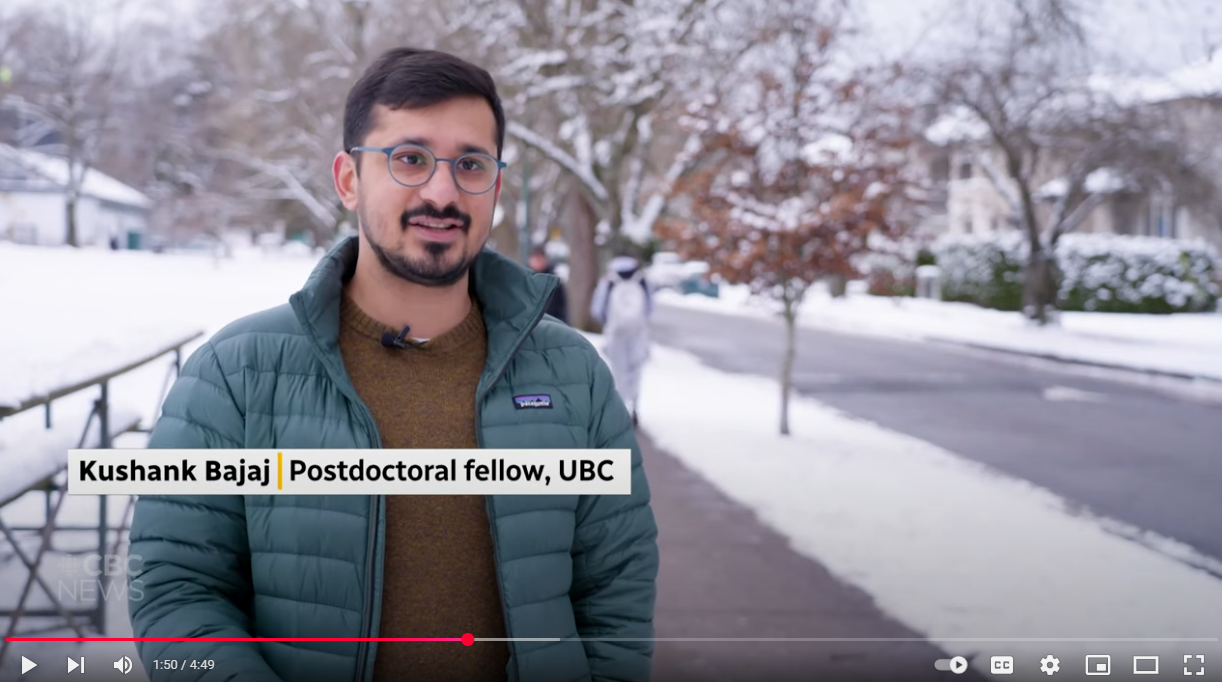
Extreme weather puts pressure on fruit and vegetable costs and supply | CBC
Climate change is causing more heat domes and deep freezes, and as the CBC's Camille Vernet explains extreme weather affects food prices and supply.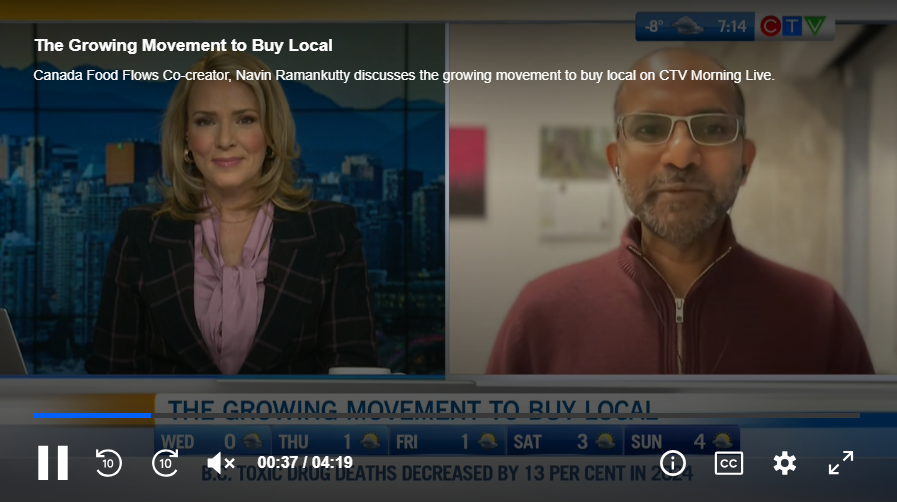
The Growing Movement to Buy Local | CTV News
Canada Food Flows Co-creator, Navin Ramankutty discusses the growing movement to buy local on CTV Morning Live.
UK failing to match EU in fight against ‘forever chemicals’, say scientists
The UK government responds to a letter from 59 experts, including IRES's Gunilla Öberg, which called for wide-ranging restrictions on “forever chemicals”.
Here’s how a scarcity mindset forms—and how to overcome it
Dr. Jiaying Zhao spoke about scarcity mindset.
Have a very sustainable Christmas: 5 tips from the experts
UBC researchers Dr. Jiaying Zhao, Dr. Kai Chan, Dr. Johan Foster, Dr. Guangyu Wang, Dr. Nadine Borduas-Dedekind, and master’s student Daphne Chevalier gave advice on how to make the holiday season sustainable!
Want folks to use reusable mugs? Give them a chance to win free coffee: UBC researchers
A chance at a free coffee works better than a discount to encourage people to bring in their reusable mugs at coffee shops. UBC Psychology and IRES researchers are featured in Prince George Post for their findings.
TA Opportunity for UBC Course: ASIC 220
Looking for a TA for an introductory course that provides a comprehensive introduction to sustainability from a science, economics, and societal perspective!
COP29 preview
Dr. Simon Donner spoke to CBC about what to expect from COP29, the 29th UN climate change conference
How much progress has Canada made since the Paris Climate Agreement in 2015?
Dr. Simon Donner spoke about B.C. and Canada’s progress since the 2015 Paris Agreement was signed.
The smog capital of India
A study by Dr. David R. Boyd explained the urgency for treating air pollution as a human rights issue.
Canada’s Net-Zero Advisory Board recognizes BECCS
Dr. Simon Donner explained Canada’s Net-Zero Advisory Body, of which he is a co-chair
The secret lives of Vancouver’s bats — and the race to save them
Master’s student Aaron Aguirre discussed his urban bat project which can help combat white-nose syndrome, a deadly fungal disease affecting bats.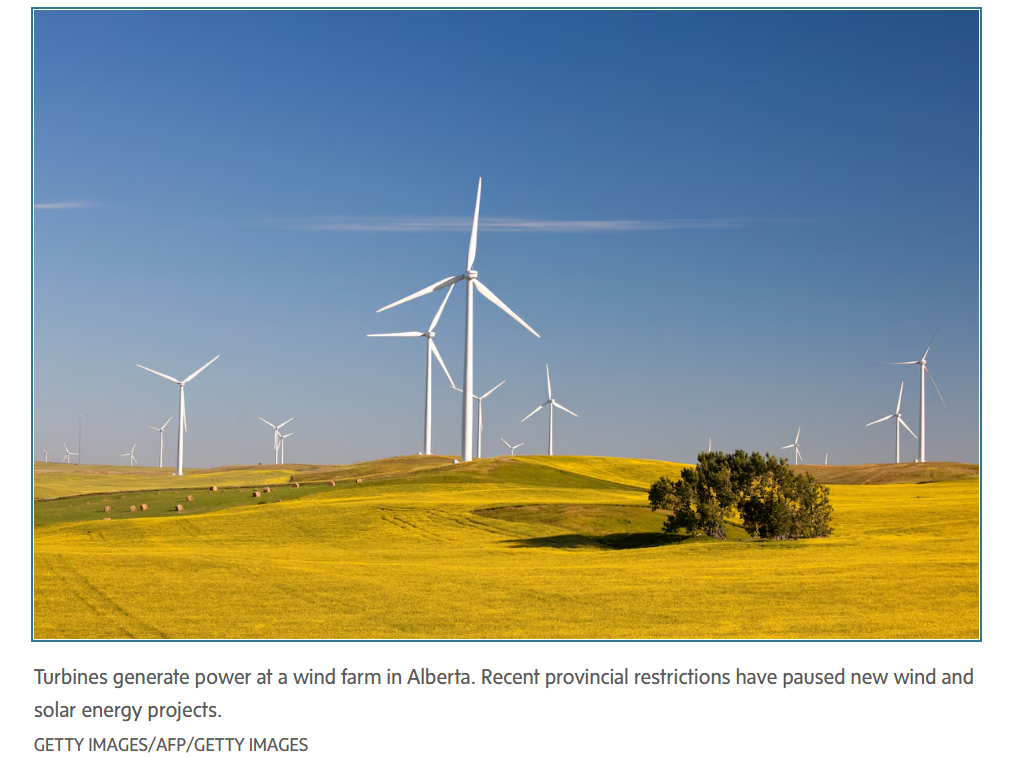
What Canadian provinces can learn from the Texas energy experience
Dr. Milind Kandlikar is featured in The Globe and Mail for his observations on B.C's expertise in hydropower shaping the market of renewable energy for its province
B.C. atmospheric river a successful first test of community-led rain management project
PhD student Charlotte Milne weighed in on CBC News about the benefits of rain gardens to manage stormwater.
How can B.C. protect itself from the next atmospheric river?
CBC features Dr. Kai Chan for his recommendations to reroute water through ecosystems instead of human-made structures for stormwater management.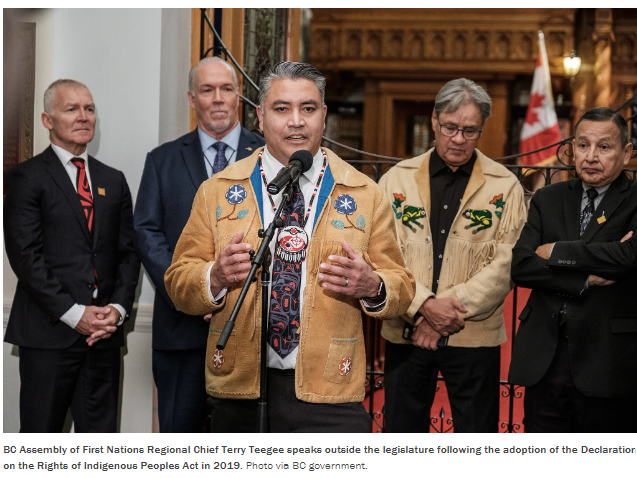
‘Rustad is a threat to first nations and a threat to reconciliation’
Postdoctoral researcher Dr. Justine Townsend commented on the importance of Indigenous Protected and Conserved Areas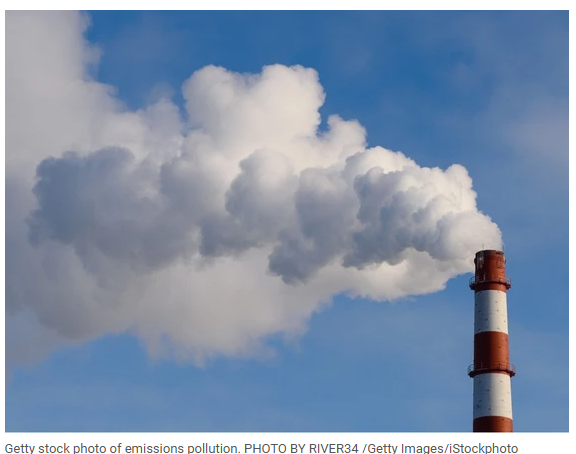
Canada must boost climate change targets: report
Dr. Simon Donner, discussed a new report from the federal Net-Zero Advisory Body which recommended that Canada boost its 2035 emissions reductions target.
Understanding hearts and minds is key to buy-in for federal climate policy
Dr. Jiaying Zhao commented on the federal government’s behavioral studies and surveys to shape federal climate policy and encourage sustainable actions in the National Observer
Finalists for 2025 Indianapolis Prize helping protect parrots, manatees, jaguars and more
PhD candidate Alberto Alves Campos is among the finalists for his work on helping the endangered Antillean manatee in Brazil. Photo credit: Maegan Luckiesh
New stormwater infrastructure is needed for Canadian cities to handle increased urban flooding
PhD candidate Mauricio Carvallo Aceves is featured in the Conversation, writing about increasing concerns of urban flooding in Canada.
What is societal collapse? Lessons from the past can help us understand our future, but only to a point
IRES's Dr. Amanda Giang and Charly Phillip are featured in The Conversation with Dr. Daniel Steel (School of Population and Public Health) for their article about how lessons from historical societal collapse is helpful for thinking about the future.
Graduate Academic Assistant for the Pathways to Zero Impacts project | Deadline September 13
Dr. Amanda Giang’s LEAP lab is looking to hire a Graduate Academic Assistant for the Pathways to Zero Impacts project. This is a part-time temporary role for a graduate student. Details from the posting are below and you can learn more about the project here. We are seeking a highly motivated graduate academic assistant (GAA) […]
PARKS+ Collective Project Coordinators: 4 part-time positions | Deadline: August 23, 2024
The PARKS+ Collective Project is looking for up to four UBC undergraduate or graduate Project Coordinators.
UBC Micro-certificate in Climate Action Planning: Foundations, Finance and Implementation
This course is for local policy makers, planners, industry players and anyone interested in learning the foundation and practicalities of climate action planning—the goal of the program is to build capacity in different sectors to advance climate action. A background in climate change is not required!